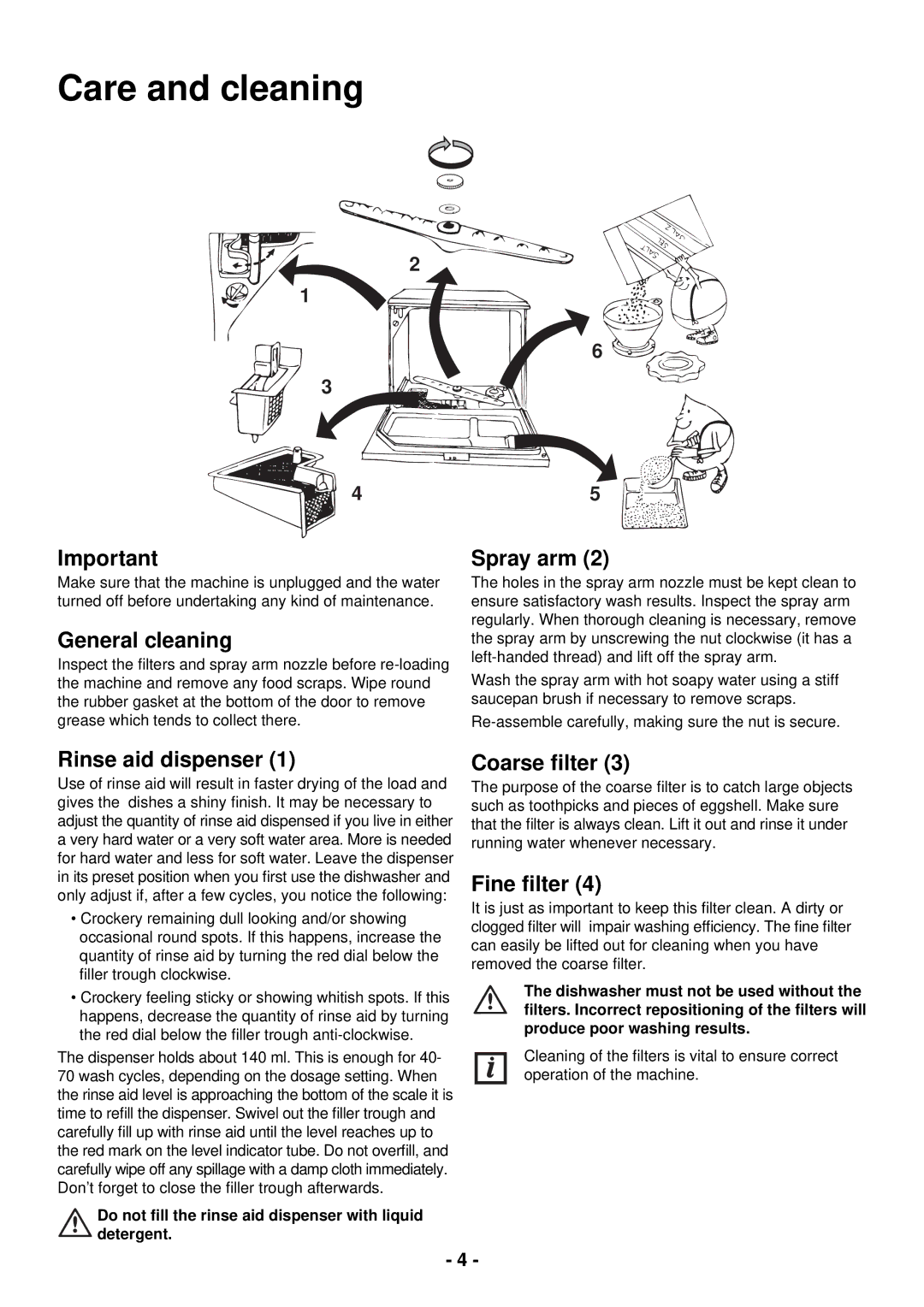BDW 10 specifications
The Tricity Bendix BDW 10 is a compact and efficient dishwasher designed to meet the needs of modern households while offering an array of features and technologies for enhanced performance. This model is particularly popular among consumers seeking a reliable appliance that doesn’t compromise on functionality or usability.One of the standout features of the Tricity Bendix BDW 10 is its impressive capacity. With the ability to accommodate up to 10 place settings, it is suitable for small to medium-sized families or those who wish to optimize their dishwashing process without taking up excessive kitchen space. The interior is thoughtfully designed with adjustable racks, allowing users to configure the layout according to their needs, whether washing larger pots or delicate glassware.
In terms of energy efficiency, the BDW 10 is rated with a commendable energy label, showcasing its environmental credentials. The dishwasher incorporates advanced technologies that minimize water and energy consumption without compromising cleaning performance. This not only translates to lower utility bills but also aligns with eco-conscious consumer values.
The Tricity Bendix BDW 10 features multiple wash programs designed to tackle different cleaning requirements, including intensive cycles for heavily soiled dishes and quick wash options for lightly soiled items. These programs help in optimizing both water usage and cleaning effectiveness, making it easier for users to select the ideal wash based on their specific needs.
Another key highlight is the quiet operation of the dishwasher. Operating at a low decibel level, the BDW 10 ensures that kitchen tasks can be completed without the nuisance of excessive noise. This feature is particularly appreciated in open-concept living spaces or for users who often run the dishwasher during evening hours.
Furthermore, the integrated safety features, such as a child lock and overflow protection, offer additional peace of mind, particularly in homes with young children or pets. The intuitive control panel allows for easy navigation through the various settings, making it user-friendly even for those less experienced with kitchen appliances.
Overall, the Tricity Bendix BDW 10 combines practicality, efficiency, and innovative technologies, making it a solid choice for modern kitchens. Whether its efficient use of energy and water, versatile washing programs, or its compact yet spacious design, this dishwasher proves to be a reliable partner in maintaining cleanliness with ease and convenience.

